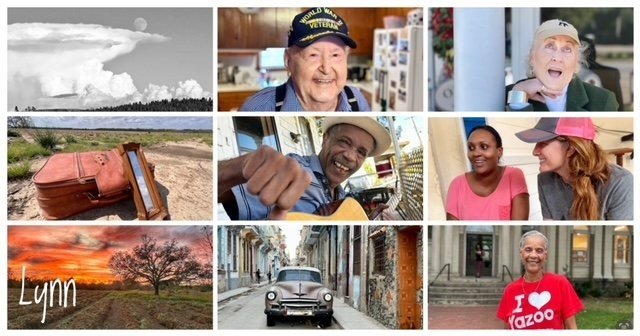Radical Neighbors
"Radical neighborliness is realizing that we have the power to create a better world together when our governments refuse to do it themselves...Change starts with community...Find a role to play in your own community."
Drew Philp, author of A $500 House in Detroit, said this in his TED Talk about how repairing a house in Detroit helped him learn how to build a community. He said if Detroit can rebuild, any other city can do it, too. But rebuilding a community is making it better for everyone, not just renovating and pushing some people out so that more desirable people will move in.
Today I helped serve pork roast and sweet potatoes to the homeless at the weekly Monday lunch at First Christian Community Church. Lee Hixon, the pastor, asked me to check out the old flophouse at the end of the block that is for sale and to pray over it. His vision is a ministry that turns the abandoned building into a transition home for homeless men and women. He knows a hot meal served with love once a week can change lives, but believes there is much more to be done. It is hard to go from homeless to employed in Mobile.
Hixon's vision includes paying homeless men and women to help remodel the building --a job training program to prepare them for construction jobs and they can move into the rooms as soon as they are finished. Life skills classes can help them get back on their feet. He knows creating a ministry like this won't be easy and used the word sanctification, to set apart for particular use in a special purpose or work and to make holy or sacred, to describe it.
"Sanctification is painful," he says. "We can't be afraid to let that happen."
I walked the neighborhood before I stopped to pray because even just praying over a ministry that I believe in was a little painful. How would the community feel about my prayer to bring in homeless men and women as their new neighbors. How would I feel if I was them? There are valid arguments. It is close to a school. Close to a church. Close to my house. We are trying to get crime down. These people would bring more crime in. I would think the same things, too.
The surrounding blocks are filled with historic homes built in the 20's. Some are restored perfection with flags hanging from porches and swings and rockers ready for company at any time. Water splashes in fountains and stone lions guard front doors. There is also the sound of snares, cymbals and the click of drumsticks from the house across the street from Leinkauf School, the oldest active elementary school in Alabama (started in 1903). In another yard, a wooden church birdhouse is nailed to a tree and with a cross above the hole where birds go inside. Would neighbors be as welcoming to those who need help as they are to birds?
Hixon says the building became an open-air drug market but the windows are boarded up now. There are broken bottles of Wild Irish Rose beside the steps. But it is a place of peace, too. Bean, who had lunch at First Christian, follows his mom home on his Spider-Man bike. He is passed by a mother pedaling a boy with a backpack, not much older than Bean, home from school on her tandem bike. Oak trees give shade and a mockingbird sings all of his songs. There is a tumbled down treehouse in the yard next door. A neighbor stopped to ask if I was okay and said the treehouse has been there for at least 20 years.
Today someone also asked for help finding a donation of five gallons of paint for the inside of the "Block House" close to downtown Mobile. It is a dismal concrete apartment building that charges $90 a week. Volunteers who deliver meals on Sunday nights through One Meal want to brighten up the building and give a little cheer to people who live there. Getting a 5-gallon bucket of paint donated should be easy.
Getting the community to support transitional housing for the homeless will be much harder. Shelters provide cots at night, but not a way to get people off the streets for good. Hixon says a program that changes lives is what we are missing in Mobile. What if this building I am praying over could be a solution? Are we ready to take a radical step like this?
Sitting on the steps, it is easy to imagine this as a place of healing and hope with programs that give second, third or fifth chances to turn lives around. Are there people who would share Hixon's vision and make it happen? Is Mobile ready to become a city of radical neighborliness?
Hixon has faith. "If it is God's will, it will happen in a miraculous way."
I prayed for Hixon's vision, but I prayed for the rest of us to get a little radical, too






